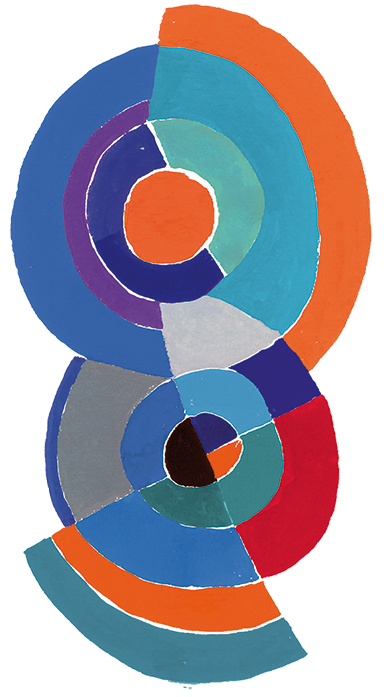
How music helps
In music you can express what is taking place inside of you without using words. If you find you have no words yet to express what you are experiencing or if you tend to use words to cover up what is happening, then music therapy can offer a helpful way in.
Music has the power to touch you deeply and to help you to get to know and understand yourself. Music can bring you into a state of flow and let you play and live from a place of trust instead of control.
Music and emotion (regulation)
A lot of people find it scary to admit their feelings. They're afraid they're going to feel worse. Music helps us to connect with our feelings. We hear music and immediately feel its effects: tears or joy for example. The rational mind cannot stop or influence this. This characteristic makes our experiences with music so pure. It can help you gain clarity about what you actually feel and about what the feelings have to tell you. Recognising your emotions in a piece of music can make you feel understood and less lonely. Expressing your feelings in music can be liberating.
Music and contact with others
When making music, you have a form of contact without words. How someone plays is a clear mirror for what their contact with others looks like. Someone who doesn't give themselves any space, might not be able to do so while playing. A control freak may not be able to surrender to the music. Someone who has bad experiences with conflicts, may want to play as inconspicuously as possible, and so on. The power of music therapy is that you not only get this pattern mirrored in a clear way, but you can also practice and experience what happens when you do things differently.
“I'm someone with whom ‘the upstairs room’ is constantly working. Playing and listening takes me away from the constant thinking and finally brings me back to my feelings.”
— Rob (40)
Concretely working in the “here-and-now”
Music therapy is a form of experiential psychotherapy. Experiencing and feeling while listening and playing is central; it is the starting point of our conversations. This working in the “here-and-now” makes the way of working and learning concrete. You can come up with surprising solutions that your mind would not have otherwise been able to.
In music therapy it is all about processing, change, acceptance or personal development. The past is only involved in the therapy if it is meaningful in regard to the treatment goals.
Do I have to be musical?
In order to benefit from music therapy, it is not necessary to be musical or to play an instrument. Music is used in such a way that musical skills are not a factor.

